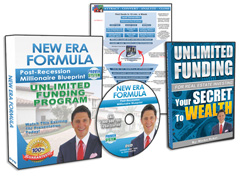
 Owning a rental property, if done right, can bring in consistent monthly cash flow. On the other hand, if it is done wrong, it can mean a loss of money and much frustration. If you are planning on buying a rental property, there are several pitfalls to avoid that can land you financially upside down on the property.
Owning a rental property, if done right, can bring in consistent monthly cash flow. On the other hand, if it is done wrong, it can mean a loss of money and much frustration. If you are planning on buying a rental property, there are several pitfalls to avoid that can land you financially upside down on the property.
Buying in a Non-desirable Location
Before obtaining a rental property, it is integral to do in-depth research on the area. While looking at the location, keep these questions in mind:
- What are the current rents on comparable properties in the area?
- Is there future development planned in the vicinity? If so, that can mean growth and an uptick in the rent the unit can command later.
- What is the demographic in the area? What types of tenant will the property attract?
- If families are your target renter, what is the rating of the school district?
- What is the crime rate?
Getting a rental in the right area in the right market can bring in steady monthly cash flow if you do your research.
Underestimating Costs
There are many costs of owning a rental. Making sure that you account for all of the possible expenses can avoid financial strain in the future.
Known expenses: Obvious expenses need to be evaluated, like property taxes and utilities. Don’t just look at today’s costs. The cost of these items will likely rise over time, and you need to make sure that you will still be cash positive if prices go up.
Unexpected expenses: Accounting for unforeseen costs can help avoid a headache in the future. Look at the structure of the property:
- Will it need a new roof?
- How old is the HVAC system?
- Are there signs of any water damage?
- How old are the appliances? Will they need to be replaced?
Keep these questions in mind when calculating your potential costs of owning a rental property. Being as prepared as possible for surprise expenses means avoiding stress later scrambling to come up with the money to cover the cost.
Overestimating Rent
Based on the rents in the area, will your property be able to fetch a high enough monthly rent to cover your holding costs and things like basic maintenance? When calculating a realistic rent amount keep in mind the amount of passive income you want to bring in each month. If the numbers don’t add up, you will need to continue your search.
Being realistic in your expectations of the rent you can charge not only now, but in the future, is essential when managing the cash you want the property to bring in monthly.
Also, consider the rental market, and adjust your expected rental income accordingly. If you set the rent too high for the location, there is a chance that it may sit vacant. Can you maintain the costs on the property if you don’t have a renter for a few months?
Overall, if you do your research and due diligence before investing in a rental property, it can be a lucrative venture and bring in cash flow for the future.
Request FREE Funding Kit and Discover How To Legally Bypass Banks And Gain Direct Access To "No-Credit-Required" Funding You Can Use To Achieve Your Financial Freedom... Start Now!












